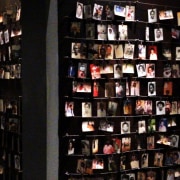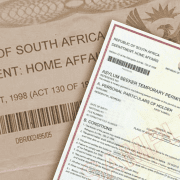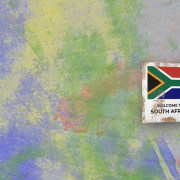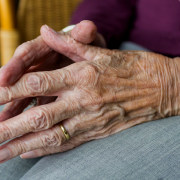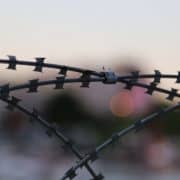|
Getting your Trinity Audio player ready...
|
• A painting by Gunduz Aghayev depicts Aylan Kurdi playing on the sand. Image: Gunduz Aghayev
By Thato Mahlangu
Millions of people continue to be displaced in different parts of the world. A 2019 global trends survey by the UN Human Rights Council (UNHRC) reveals how at least 100-million people were forced to flee their homes during the last 10 years, seeking refuge either within or outside the borders of their country.
Among those millions are innocent children who didn’t ask for the wars ravaging their countries, but like their parents, are victims of circumstances. If it wasn’t for a heartless leader, who has yet to be held accountable for prolonging the devastating war in Syria, Aylan Kurdi would not have died at the age of three. It is believed that Kurdi would have been 8 years old this year but instead, his lifeless body was washed ashore after he drowned in the sea in 2015. His family and thousands of Syrians had fled their country of birth – their lives turned upside down by turmoil at home.
In South Africa, refugees have different lived experiences and challenges, ranging from being forced to pay bribes to apply for documents or to access basic services which are their due under the South African Constitution, to being attacked by locals and accused of taking away economic opportunities in the form of low-income jobs.
The organisation Africa Check, after reviewing the statistics, has dismissed these claims. It quotes Dr Zaheera Jinnah, anthropologist and researcher at the African Centre for Migration and Society: “The idea that people are here ‘stealing’ jobs and that they don’t have a right to be here needs to be corrected”. When tensions have flared up in communities, locals have frequently called for the establishment of refugee camps, something the South African government has been seen to oppose, and which would create further problems of ostracism and xenophobia towards refugee communities.
Many of these refugees, who have been integrated into our communities and have called South Africa home for many years, fled their countries of birth because of conflicts arising from political infighting, while climate change, lack of economic opportunities, and sexual orientation drove others away. Some countries, unfortunately, do not have the same democratic principles as South Africa. Even though some members of the South African LGBTI community believe this to be a conservative country, laws have been changed to accommodate the rights of this community while in other parts of the continent persecution is the punishment that awaits people who are open about their sexual orientation, according to UNHRC.
Vulnerable to corruption
Apart from the physical, emotional and psychological abuse suffered by people considered to be refugees or undocumented migrants, they are often financially abused and vulnerable to corruption.
Allegations of bribery and sextortion at some home affairs offices have been reported to the media and civil society organisations, but little has been done to address these issues, or the frequent media reports about the abuse some endure at deportation holding facilities.
Part of our work as Corruption Watch (CW) has been to assist migrants, refugees and asylum seekers, to expose the corruption that happens at these facilities.
Since 2014, CW has been partnering with a number of organisations and activists, and with the help of whistle-blowers, has been able to investigate a number of cases involving home affairs officials, in relation to asylum and refugee applications.
Corruption in Home Affairs’ immigration section has been exposed by our efforts and those of other organisations and independent activists. One of our partnerships with organisations like Coordinating Body of Refugee and Migrant Communities, and the African Diaspora Forum among others assisted in the launch of a sting operation and resulted in CW opening cases against these corrupt officials.
A report, titled Project Lokisa: Asylum at a Price, launched in 2016, has exposed the corruption that has been reported at facilities like the Marabastad refugee reception office in Pretoria, and includes interviews with whistle-blowers, as well as recommendations for addressing corruption in this space.
Today, on World Refugee Day, we hope and wish that millions of refugees would be afforded the kind of humane treatment they deserve, and are not excluded or left behind. We also pray that the leaders who are responsible for inflicting pain and suffering in their countries and on the lives of their citizens would change their ways, lead with compassion, and end these atrocities.

